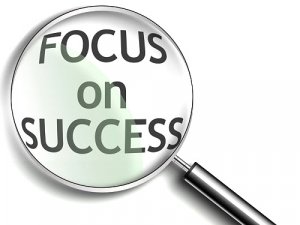Which academic qualifications do you need to do to achieve career aspirations in your life? One such qualification is Certified Fraud Examiner (CFE). This is one of premier qualifications administered by a global body; Association of Certified Fraud Examiners. I want you to take a moment and understand why you need CFE.
When you are sick, you go to the medical doctor. When you want to get new knowledge, you look for a teacher. When you want to express an opinion on your financial statement, you seek an external auditor. But where do you go when you want to determine who did what, where, when and how? If you want to get answers to these questions, you need to go to the right expert to give you answers other than opinions. You need facts not hearsay.
CFE gives you the facts. The course has four critical modules that make the fraud examiner. These four modules are well articulated in CFE’s premier publication; Certified Fraud Examiner’s manual. This manual for CFEs is like the Bible for Christians.
The manual for the Certified Fraud Examiner contains the following modules;
- Financial transactions and fraud schemes
Fraud is an intentional misrepresentation of material facts so as to cause a gain to one party and a loss to the other. You need to be able to quantify the loss occasioned. Until you are able to do that, you will not sustain any charge in court. CFE course appreciates that fact and one of the biggest modules is financial transactions taking you which gives basics you need and then deep into the world of financial reporting and accounting.
You understand the books of original entry, trial balance, credit and debt. Whether you are an accountant, lawyer, professor, auditor, these modules are written by experts in so simple ways that you even smile as you read. It is from the failure to respect the rule of accounting; double entry that people begin committing some fraud schemes.This module introduces you to the fraud tree, as this highlights common fraud schemes and how they are committed.
- Investigations
If you get an external auditor, their objective is to express an opinion on financial transactions. Most of the time, the auditor has gotten a standard methodology. Unless this particular auditor has studied specifically the fraud examiners manual, it is unlikely they are able to collect evidence to help tell who did what, where, when and how during the audit. This is why you don’t need to confuse the two things. You must separate them. Fraud investigations clearly gives tools and skills you need as an investigator to uncover who, did what, when and how of any fraud case.
This module explains how you manage an investigation from inception to disposition; from start up to the end. How to take statements, interviews of suspects, and collecting evidence. The module gives details of special investigations like cyber security, computer forensics, investigations involving international frauds and money laundering. This is the basics and takes you deep to understanding how do you investigate but only stop there, how you write an investigation report.
- Law
Unlike an audit, with any investigation the assumption is that matters will end up in courts of law. It means that along the way, an investigator must collect evidence that is admissible in courts of law. Regardless of your field, CFE gives you the details you need in understanding law from the rules of evidence up to everything you need to become a very good expert witness.
You get to understand the local laws, rules of evidence, global perspectives and international law. These give you the confidence you need to stand in any court.
- Fraud prevention and deterrence
Preventing fraud is better than the three modules mentioned above. Fraud prevention takes you deep into the mindset of the fraudster. Why do criminals do the things they do? What causes people to commit fraud at the work place? What is occupational fraud and how does it take place? What makes people to rationalize their actions for committing fraud.
You learn about good governance practices and the psychology of the fraudster. The module introduces you to the insights to professors who have studied crime and summarized it in simple ways for you to understand.
Finally; a very good soldier is a person who doesn’t just have the best armoury or fire arms but who knows how to use them. It doesn’t matter how much resources you have, you don’t how to use them, they will be enough.
When it comes to fraud investigation to a Certified Fraud Examiner, their best weapon is the fraud manual. It gives thousands of cases explaining who did what, when, where and how. Having the fraud manual is not enough, you must find time and read it. Get an expert to take through with practical insights. I invite you to the Institute of Forensics and ICT Security and to the Uganda Chapter, ACFE.



